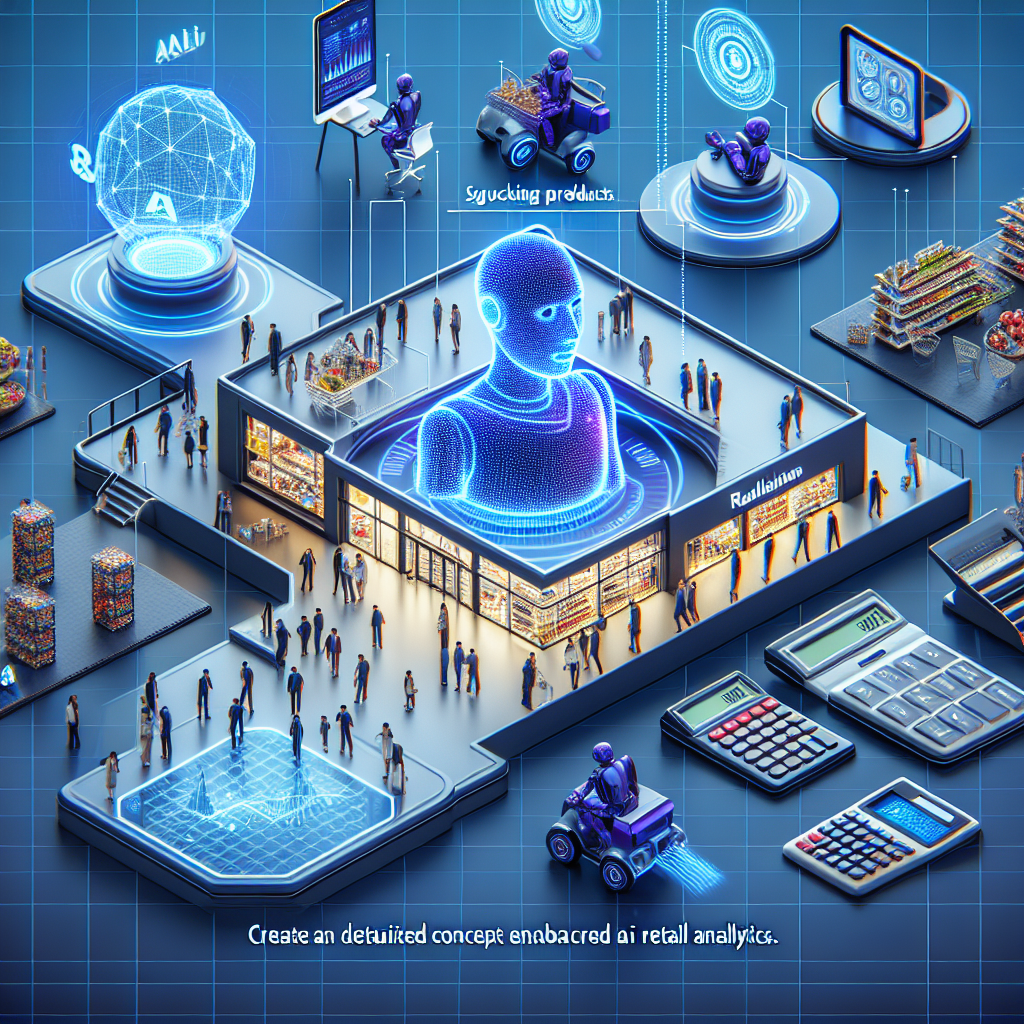In today’s digital age, retailers are constantly looking for ways to improve their operations, enhance customer experiences, and increase profitability. One technology that is playing a crucial role in achieving these goals is artificial intelligence (AI) software. AI software is revolutionizing the retail industry by providing retailers with valuable insights into customer behavior, preferences, and trends. In this article, we will explore the role of AI software in retail analytics and how it is helping retailers stay ahead of the competition.
Role of AI Software in Retail Analytics
1. Customer Segmentation: AI software can analyze vast amounts of customer data to segment customers based on their purchasing behavior, demographics, and preferences. This allows retailers to create targeted marketing campaigns and personalized offers to specific customer segments, leading to higher conversion rates and increased customer loyalty.
2. Demand Forecasting: AI software can analyze historical sales data, market trends, and external factors such as weather patterns to predict future demand for products. This helps retailers optimize their inventory levels, reduce stockouts, and minimize overstock situations, leading to improved profitability and customer satisfaction.
3. Price Optimization: AI software can analyze competitor pricing, demand elasticity, and customer behavior to optimize pricing strategies. Retailers can dynamically adjust prices based on real-time data, maximize profit margins, and remain competitive in the market.
4. Product Recommendations: AI software can analyze customer browsing and purchase history to provide personalized product recommendations. This helps retailers increase cross-selling and upselling opportunities, enhance the shopping experience, and drive higher sales.
5. Fraud Detection: AI software can analyze transaction data in real-time to detect fraudulent activities such as unauthorized transactions, identity theft, and account takeover. This helps retailers prevent financial losses, protect customer data, and maintain a secure shopping environment.
6. Supply Chain Management: AI software can optimize supply chain operations by forecasting demand, predicting lead times, and identifying potential bottlenecks. This helps retailers streamline their logistics processes, reduce costs, and improve on-time delivery performance.
7. Sentiment Analysis: AI software can analyze customer reviews, social media mentions, and feedback to understand customer sentiment towards products and brands. This helps retailers identify areas for improvement, address customer concerns, and enhance brand reputation.
8. Store Layout Optimization: AI software can analyze in-store traffic patterns, customer behavior, and product placement to optimize store layouts for better customer flow and product visibility. This helps retailers enhance the shopping experience, increase dwell time, and drive higher sales.
FAQs
Q: How does AI software collect and analyze customer data in retail analytics?
A: AI software collects customer data from various sources such as POS systems, e-commerce platforms, loyalty programs, social media, and mobile apps. It then uses advanced algorithms to analyze this data and generate actionable insights for retailers.
Q: Is AI software only suitable for large retailers, or can small businesses benefit from it as well?
A: AI software is becoming more accessible and affordable for businesses of all sizes. Small retailers can leverage AI software to gain a competitive edge, improve operational efficiency, and enhance customer experiences.
Q: What are the key challenges of implementing AI software in retail analytics?
A: Some of the key challenges of implementing AI software in retail analytics include data privacy concerns, integration with existing systems, employee training, and the need for technical expertise. However, these challenges can be overcome with proper planning and support from experienced AI vendors.
Q: How can retailers ensure the ethical use of AI software in retail analytics?
A: Retailers should establish clear guidelines and policies for the ethical use of AI software, including data privacy, transparency, and accountability. They should also regularly monitor and audit AI algorithms to ensure fairness and compliance with regulations.
Q: What are some future trends in AI software for retail analytics?
A: Some future trends in AI software for retail analytics include the use of advanced machine learning techniques, natural language processing, and computer vision to enhance customer experiences, personalize marketing campaigns, and optimize supply chain operations.
In conclusion, AI software is transforming the retail industry by providing retailers with valuable insights into customer behavior, preferences, and trends. By leveraging AI software for retail analytics, retailers can improve their operations, enhance customer experiences, and increase profitability. As AI technology continues to evolve, retailers can expect even more innovative solutions to help them stay ahead of the competition and succeed in the dynamic retail landscape.

